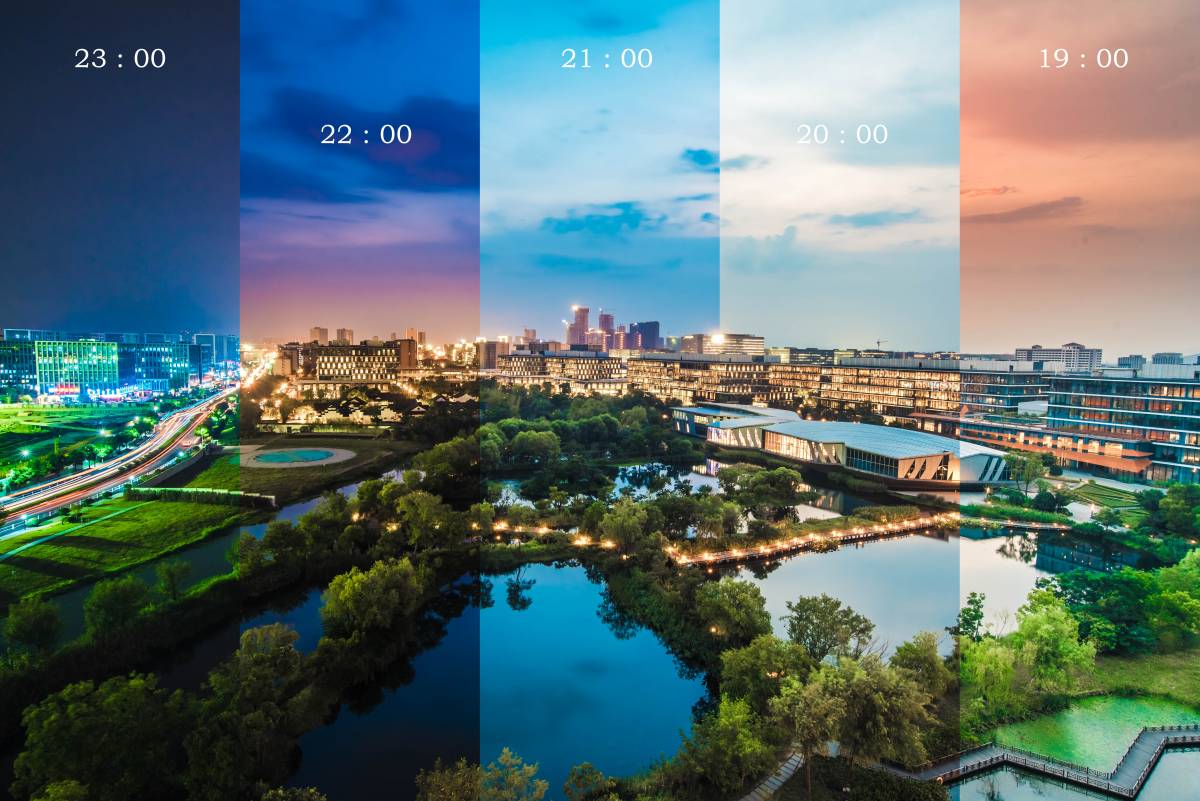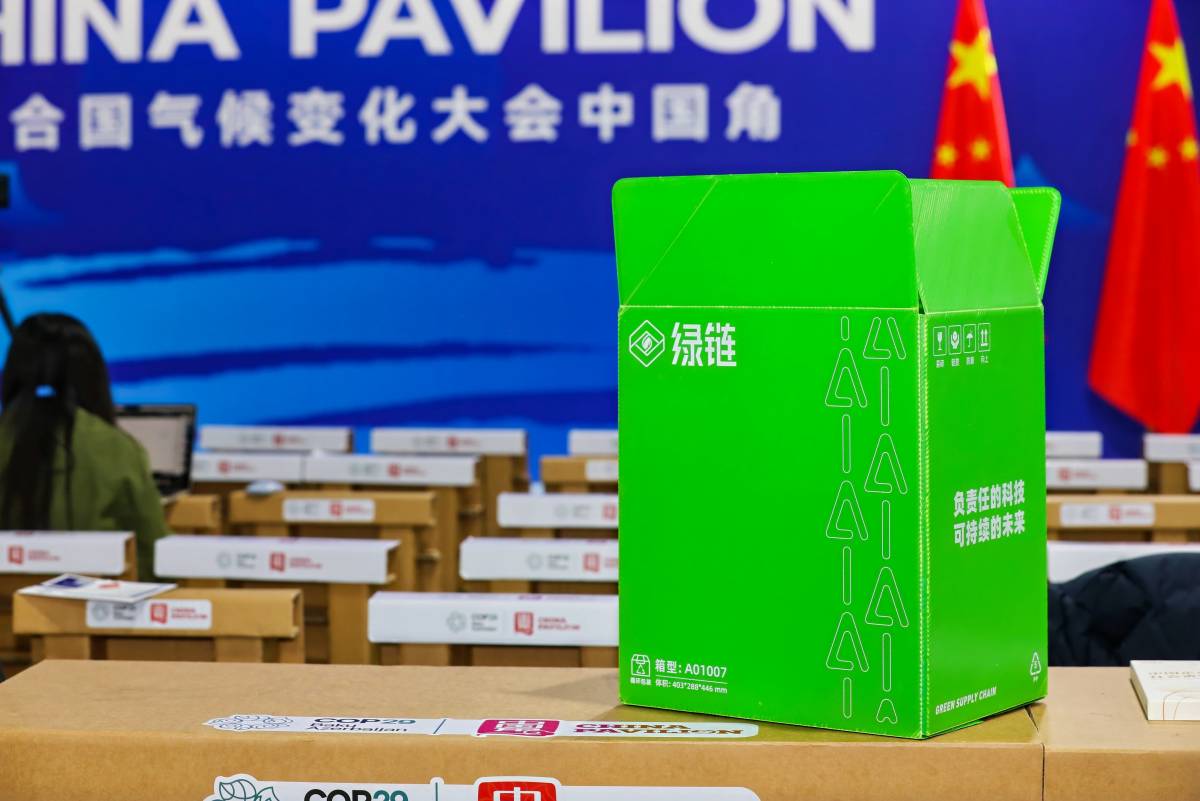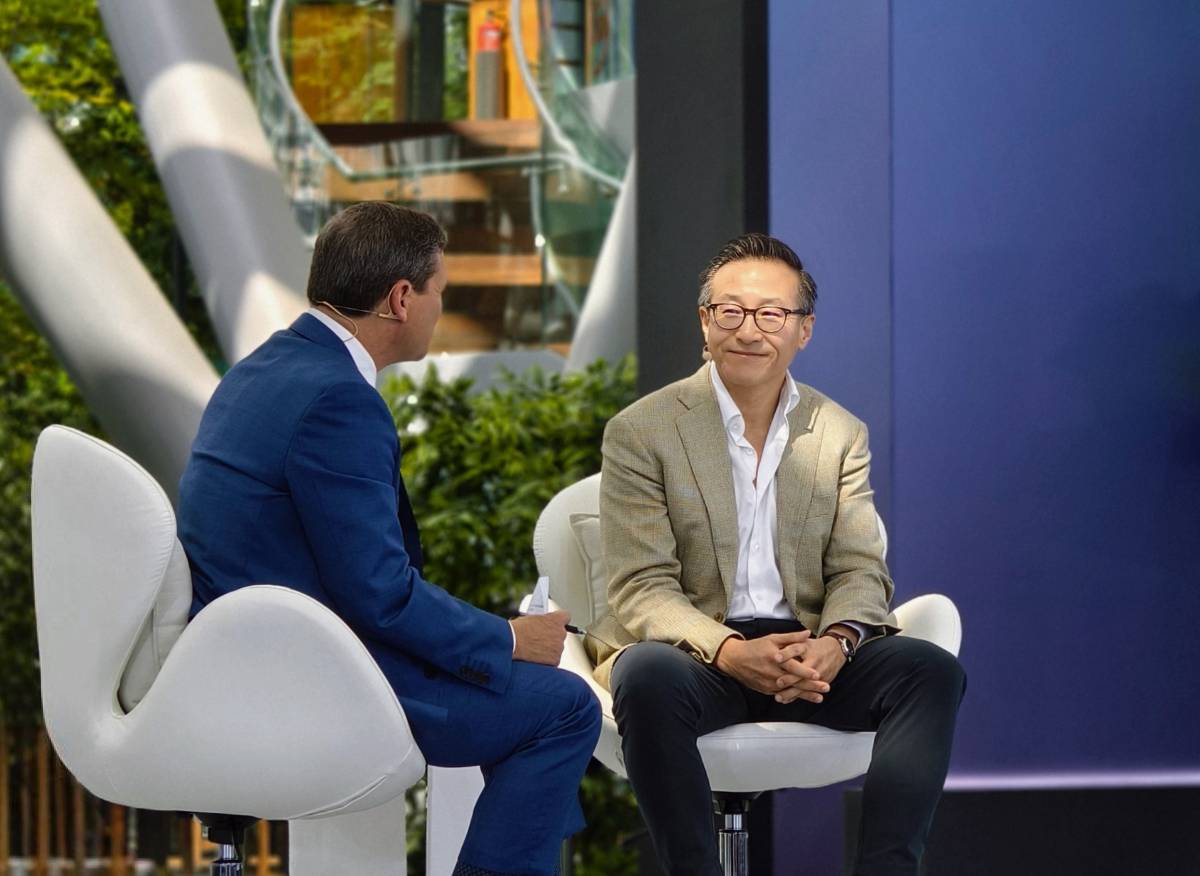
Photo Credit: Alibaba Group
The 29th United Nations Climate Change Conference (COP29) is held in Baku, Azerbaijan, from November 11-22, 2024. For Alibaba, this event marks another vital opportunity to demonstrate how digital solutions can address some of the most pressing environmental challenges, and a vision for the future where technology and sustainability work to solve the climate crisis.
Alibaba has played a consistent role at the China Pavilion for the third consecutive year, with a focus on “Digitalization Day” for the second time. From Idle Fish’s AI tools for circular consumption to advanced cloud solutions like Energy Expert, Alibaba is showing that meaningful climate action isn’t just about reducing emissions—it’s about rethinking how industries operate and leveraging technology to achieve global sustainability goals.
Chris Tung, President of Alibaba Group, Strategic Development, expressed the company’s dedication: “Alibaba is honored to support Digitalization Day at the China Pavilion once again. We are especially pleased to see COP29 feature a digitalization theme day for the first time. This reaffirms our belief that converging digital and green technologies is crucial for sustainable development.”
Here’s how Alibaba teams are pioneering change and contributing to sustainability efforts, as demonstrated during this climate summit.

AI-Powered Climate Forecasting with “Baguan” Weather Model
One of Alibaba’s key contributions to climate resilience is the recently launched Baguan model, developed by DAMO Academy, to improve climate forecasting accuracy up to days ahead. Sun Liang, senior staff engineer, Alibaba Cloud Intelligence, shared how the Baguan model leverages a global-to-regional approach, incorporating atmospheric data, radar images, satellite information, and topographical data to offer hourly, high-precision forecasts with up to 1-kilometer resolution.
“By enhancing the accuracy of weather predictions, especially for solar and wind power generation, we can help ensure a stable renewable energy supply,” said Sun Liang. The model has already been applied in Shandong Province in China, enhancing renewable energy prediction accuracy to over 98% and aiding in more efficient integration of green energy into power grids.
Data-driven Energy Management at the Paris 2024 Olympics with Energy Expert
When the world’s eyes were on Paris for the 2024 Olympics, Alibaba Cloud’s Energy Expert played a pivotal role behind the scenes. This AI-driven platform measured and analyzed energy consumption across all 35 Olympic venues.
Selina Yuan, President of International Business at Alibaba Cloud Intelligence, emphasized that the system’s real-time tracking capabilities allowed energy use to be monitored, analyzed, and optimized in unprecedented ways. “This is the first time that the Olympic energy data was hosted on the cloud, helping organizers to visualize power consumption, venue capacity, and even power demand contingency,” Yuan noted. The insights gained are expected to pave the way for more sustainable practices at future international events.
The results were significant: real-time data on electricity consumption helped organizers identify areas for optimization, offering actionable recommendations to minimize waste and increase efficiency. This showcased Alibaba’s commitment to utilizing technology for global sustainability efforts.

Cainiao’s Green Leap: 458,000 Tons Carbon Cut
As a leader in e-commerce logistics, Cainiao showcased how it had woven sustainability into every thread of its operations, from order generation to recycling.
At the heart of their efforts stood the Cainiao Green Circular Box, a clever creation equipped with an RFID chip for seamless tracking and management. This little box wasn’t just efficient; it was revolutionary, contributing to Cainiao’s impressive carbon reduction of 458,000 tons in FY 2024. Alongside it, innovations like e-waybills and optimized packing algorithms trimmed an additional 156,000 tons of carbon emissions.
Meanwhile, in bustling warehouses, workers diligently sorted and recycled 47.6 million cardboard boxes. Above them, sprawling photovoltaic systems hummed quietly, producing clean energy that slashed emissions by another 298,000 tons.
Cainiao’s roads were just as green. Nearly every urban delivery—99%—was made using new energy vehicles. On campuses, their self-developed smart unmanned vehicles delivered over 41 million parcels, redefining low-carbon transportation.
AI-Driven Energy Efficiency in Data Centers
“Green” is more than a buzzword for Alibaba—it’s a commitment to transforming core operations. Alibaba Cloud has made major strides in reducing the carbon footprint of its data centers. Wang Chaoyang, General Manager of Alibaba’s Global Data Centers, shared how the company focused on building a cloud-native infrastructure around “Five Green Pillars”—green energy, green products, green architecture, green operations, and green services.
By integrating AI-driven digital twin technologies, Alibaba Cloud has optimized energy consumption and reduced carbon emissions for its data centers. Its self-built data centers’ Power Usage Effectiveness (PUE) was further enhanced from 1.215 to 1.200. “We’re improving efficiency and setting a new industry standard,” said Wang. With AI optimizing the scheduling of computing tasks, Alibaba Cloud has cut per-unit carbon emissions by more than 10%, and these advancements are being extended to Alibaba customers, amplifying the impact of greener operations.
Transforming Circular Consumption with Xianyu
Xianyu, Alibaba’s platform for second-hand goods, is reshaping how people think about circular consumption. By leveraging the ability of artificial intelligence, Xianyu has created a dynamic and efficient marketplace for consumers to extend the lifecycle of their products.
At the heart of this transformation is Xianyu AI Assistant—the industry’s first AI tailored specifically for second-hand trading. Chen Jufeng, Xianyu’s CTO, explained how AI tools address common problems such as distrust and transaction inefficiencies. “The AI assistant reduces information asymmetry and builds trust, making it easier for individuals to buy and sell their goods confidently,” Chen said.
With a total of 55 million second-hand items listed on Xianyu, a 10% year-on-year growth, Ten million users participated in Xianyu’s past 11.11 event. Idle Fish’s impact is remarkable, with over 600 million registered users and a 110% increase in carbon reduction contributions year-over-year. This success speaks to the platform’s role in promoting circular consumption in everyday life.





